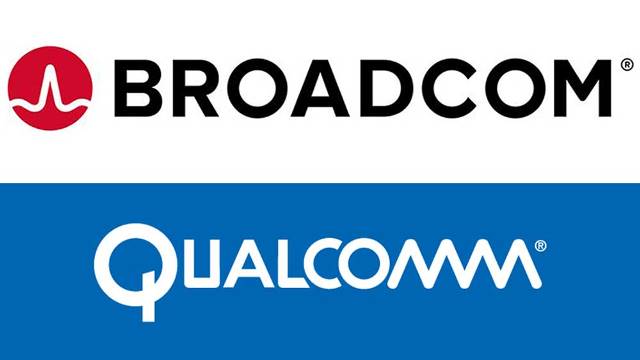
U.S. President Donald Trump has blocked Broadcom’s $117 billion bid to buy semiconductor company Qualcomm on national security grounds — fearing the dominance of China in 5G and other mobile technology.
Precisely, the U.S. administration is fearing that Huawei Technologies will dominate the 5G and other wireless technology market if Broadcom buys Qualcomm. Huawei Technologies is already the largest telecom equipment maker — ahead of Nokia and Ericsson. Huawei is also the third largest smartphone company — behind Samsung and Apple. Huawei also has a growing chipset presence.
ALSO READ: Presidential order on Broadcom-Qualcomm issue
The presidential order reflected a calculation that the lead of U.S. in creating technology and setting standards for the next generation of mobile cell phone communications would be lost to China if Singapore-based Broadcom took over San Diego-based Qualcomm, according to a White House official.
Qualcomm has emerged as one of the biggest competitors to China’s Huawei Technologies in the semiconductor sector. At present, Qualcomm and Huawei Technologies are trying to sign an agreement on their licensing dispute.
HIGHLIGHTS OF THE PRESIDENTIAL ORDER
# Broadcom might take action that threatens to impair the national security of United States
# The takeover of Qualcomm by Broadcom is prohibited
# Broadcom candidates are disqualified from becoming directors of Qualcomm
# Qualcomm shall hold its annual stockholder meeting no later than 10 days
# Broadcom and Qualcomm shall permanently abandon the proposed takeover
# Broadcom and Qualcomm shall certify to CFIUS on a weekly basis
Broadcom’s revised bid of $117 billion for Qualcomm was under investigation by the U.S. Committee on Foreign Investment in the United States (CFIUS), a multi-agency panel led by the U.S. Treasury Department that reviews the national security implications of acquisitions of U.S. corporations by foreign companies.
CFIUS in a letter on March 5 said it is investigating whether Broadcom will cut Qualcomm’s research related investments in technology to compete and cited the risk of Broadcom’s relationship with third party foreign entities. Broadcom later said it would enhance its investment in 5G and the U.S. after completing the deal.
“A shift to Chinese dominance in 5G would have substantial negative national security consequences for the United States,” CFIUS said. “While the United States remains dominant in the standards-setting space currently, China would likely compete robustly to fill any void left by Qualcomm as a result of this hostile takeover.”
A White House official on Monday confirmed that the national security concerns related to the risks of Broadcom’s relationship with third party foreign entities. The U.S. administration did not reveal the name of these third party foreign entities. Broadcom had said the company is supported by institutions in the U.S. and its majority directors are from the U.S.
A source familiar with CFIUS’ thinking had said that, if the deal was completed, the U.S. military was concerned that within 10 years, “there would essentially be a dominant player in all of these technologies and that’s essentially Huawei, and then the American carriers would have no choice. They would just have to buy Huawei (equipment).”
Broadcom said it was reviewing the presidential order.
“Broadcom strongly disagrees that its proposed acquisition of Qualcomm raises any national security concerns,” it said in a statement in response to the decision. Qualcomm did not respond to a request for comment.
The move by Trump to kill the deal comes only months after the U.S. president himself stood next to Broadcom Chief Executive Hock Tan at the White House, announcing the company’s decision to move its headquarters to the United States.
This is the fifth time a U.S. President has blocked a deal based on CFIUS objections and the second deal Trump has stopped since assuming office.
“The proposed takeover of Qualcomm by Broadcom is prohibited, and any substantially equivalent merger, acquisition, or takeover, whether effected directly or indirectly, is also prohibited,” the presidential order released on Monday said.
The order issued by the White House cited “credible evidence” that led Trump to believe that Broadcom taking control of Qualcomm “might take action that threatens to impair the national security of the United States.”
Broadcom struggled to complete its deal to buy Qualcomm which had cited several concerns including the price offered and potential antitrust hurdles.
Broadcom cannot appeal against the U.S. presidential decision that effectively blocked the largest tech deal. It is not clear what rules Broadcom would have to follow if it goes ahead with announced plans to move its headquarters to the United States.





